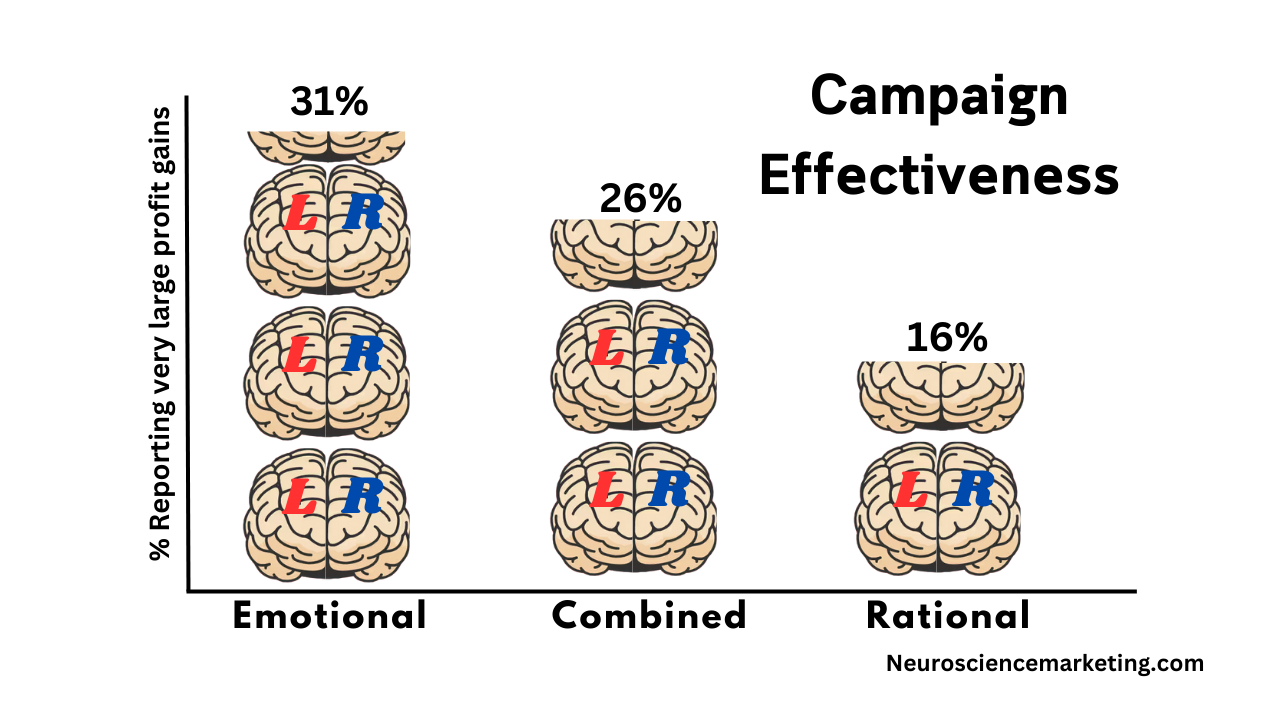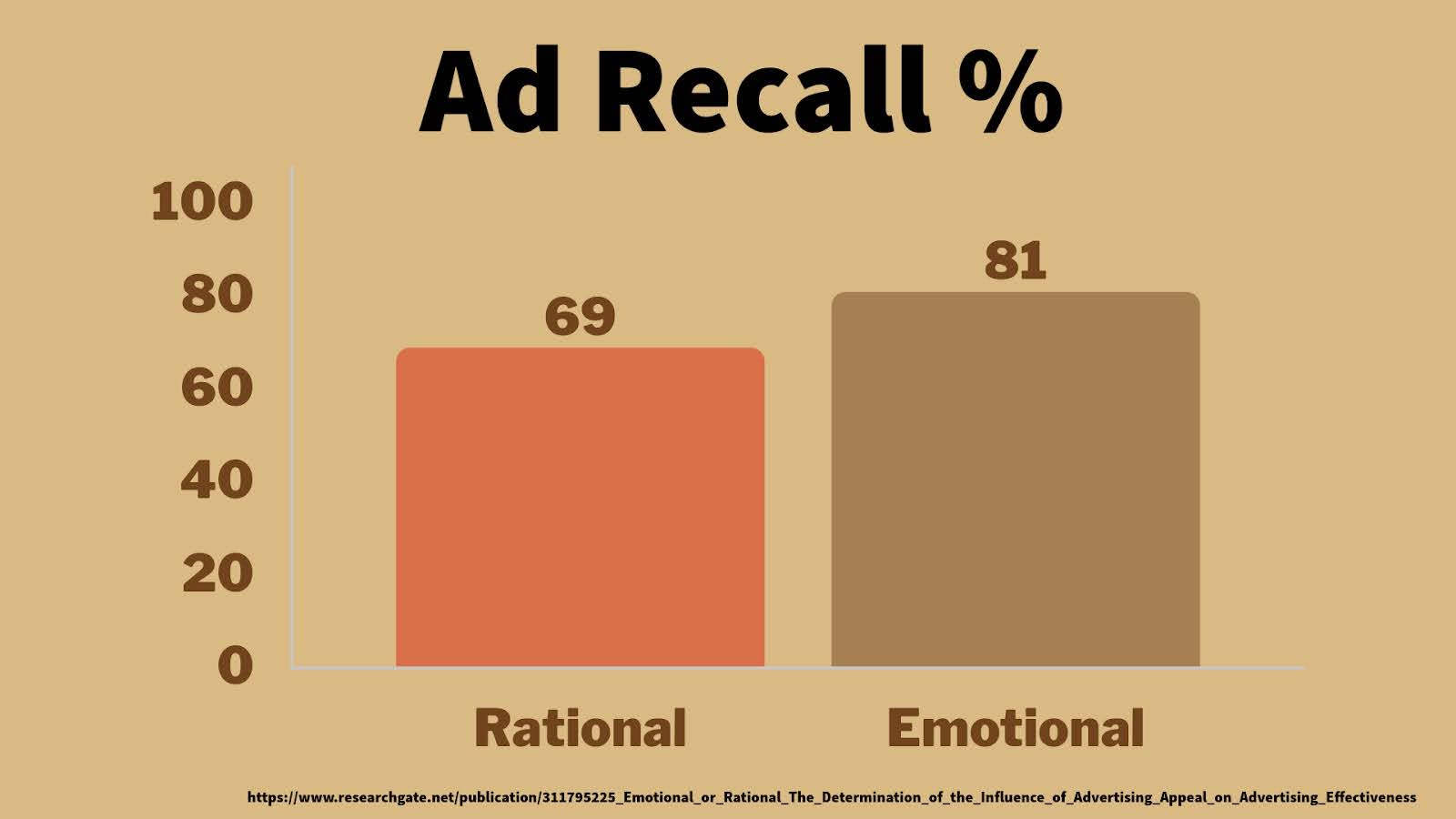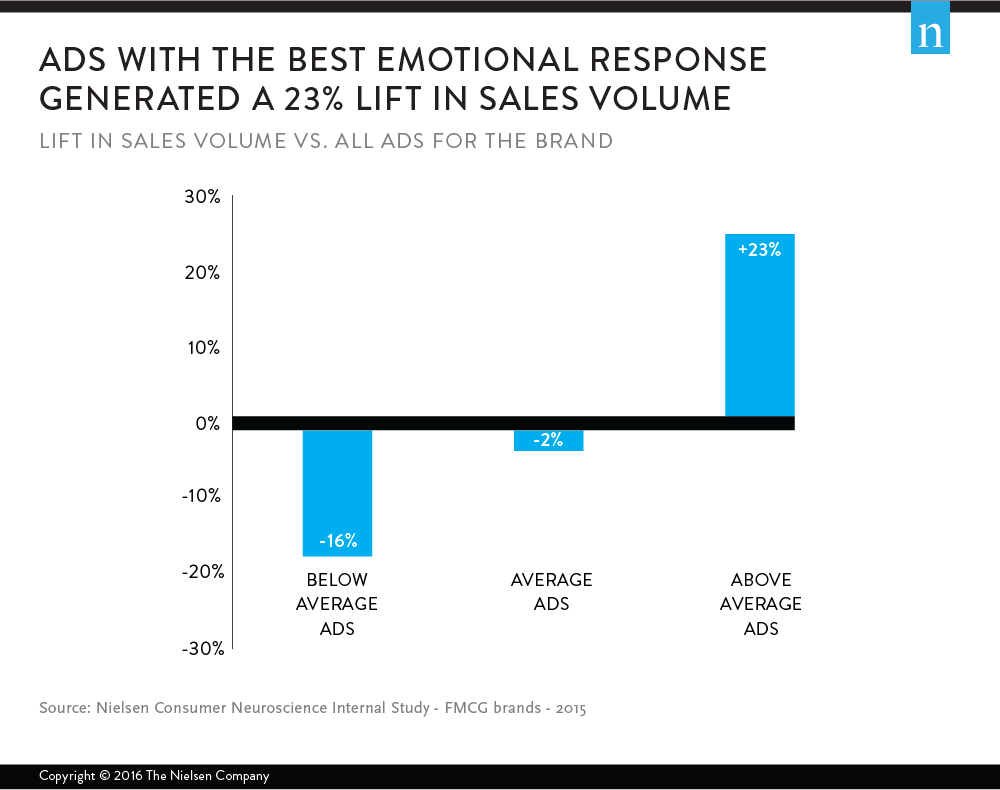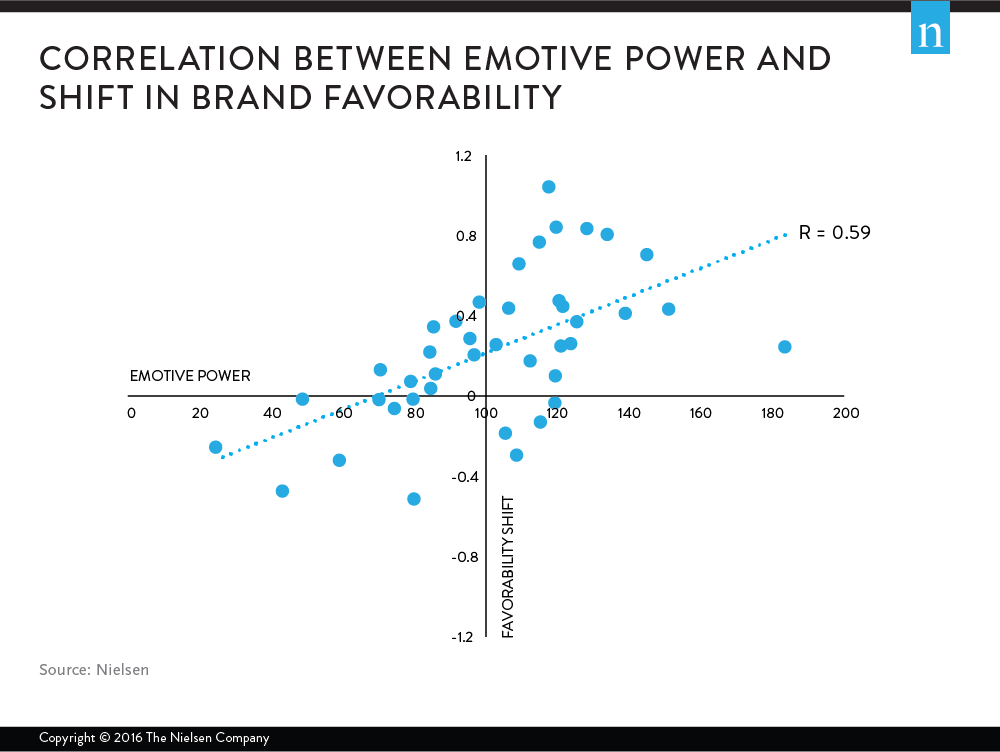Emotional Ads Work Best

The idea that ads engaging us emotionally perform better than those relying solely on logic may seem obvious to many Neuromarketing readers. Yet, I still encounter business executives who remain skeptical, believing they are not influenced by emotions when making purchasing decisions. Since they think they are immune, they often question whether emotional appeals work for their customers. For these uber-rational decision-makers, here’s the hard data to prove it.
Listen to a podcast about this article – created with Google’s NotebookLM
What is Emotional Advertising?
Emotional advertising is a marketing approach that leverages our human emotional responses to influence brand perception and purchasing decisions. Instead of focusing solely on product features or benefits, emotional ads strive to create a personal connection with the consumer. By evoking specific emotions, such as happiness, nostalgia, fear, or sadness, emotional advertising can make a product or brand more memorable and appealing. Emotional ads often include storytelling, humor, music, or other elements that resonate with our emotions.
The Research on Emotional Advertising
A book I recommend is Brand Immortality by Pringle and Field, which is based on extensive analysis of advertising data.
One significant finding comes from data collected by the Institute of Practitioners in Advertising (IPA). Their IPA dataBANK contains over 1,400 case studies of successful ad campaigns submitted for the IPA Effectiveness Award competition across three decades.
The analysis compared the profitability boost between campaigns focusing primarily on emotional appeal versus those using rational persuasion. The results were compelling: purely emotional campaigns performed twice as well as those using rational content alone, with 31% profitability increase for emotional content compared to 16% for rational. Campaigns combining emotional and rational content fell in the middle, achieving 26% profitability.
Why Do Emotional Ads Outperform Rational Ones?
Pringle and Field attribute this performance gap to how our brains process emotional input. Emotional stimuli bypass cognitive processing, often affecting us without our conscious awareness. This phenomenon is explored in depth in Low Attention Branding. Surprisingly, consumers register brand messages emotionally, even when paying minimal attention.
Emotional stimuli are also encoded more powerfully in the brain, making emotional campaigns not only more memorable but also more impactful in driving consumer behavior.
How Do You Create Emotionally Engaging Ads?
However, the book points out that creating ads which genuinely engage consumer emotions is no small feat. While it’s easier to base a campaign around a strong rational message or a “killer fact,” emotional branding requires a deeper understanding of consumer motivations and brand consistency.
Brands that successfully commit to emotional branding, like Nike, which revolves around the emotional driver of “success in sport,” demonstrate how effective this approach can be when hardwired into the company’s DNA.
Smaller Brands and Emotional Branding
Smaller brands, according to Pringle and Field, face additional challenges when implementing emotional advertising. Without the name recognition of big global brands, smaller companies may struggle to connect an emotional campaign to their product. Take Budweiser’s Clydesdales and Dalmatians—they work because everyone already knows the brand. Smaller brands need to work harder to establish the connection between their emotional messaging and their product.
Smaller brands can still succeed with emotional branding by segmenting their market. For example, Ben & Jerry’s and Jones Soda have carved out successful niches by appealing to smaller, specific segments of consumers. These brands focus on unique emotional triggers that resonate with their target audiences, enabling them to compete with larger players.
Combining Emotional and Rational Approaches
For brands that lack the resources or name recognition for full-scale emotional campaigns, combining rational and emotional messaging might be the most effective route. This combined approach ensures that consumers are emotionally engaged while also being informed about the product. Although slightly less effective than purely emotional content, balanced ads can still drive positive results. It is essential for smaller companies with lesser-known brands to ensure their ads clearly identify the product, even when primarily focusing on emotional appeal.
Emotional Ads Increase Brand Recall
A later study from researchers in Lithuania confirmed the power of emotional ads. In that study, 81% of the subjects remembered the brand depicted in emotional ads compared to 69% who remembered brands from rational ads.

Age Differences in Response to Emotional Advertising
Emotional ads are more effective in persuading older adults, according to a study conducted by Wharton and UCLA researchers. Older adults preferred the emotional ads and remembered 22% of the content vs just 7% for the rational ads.
Conversely, the rational ads worked better for young adults. Not only did they prefer the rational ads by a wide margin, they remembered 40% of the rational content vs. only 13% in the emotional ads.
How To Make Emotional Ads More Effective
One interesting finding from the age study was that the effectiveness of emotional ads could be increased for both groups by priming them with a limited time horizon (e.g., “Because Life is Short.” That intervention almost completely flipped the results for young adults, resulting in 38% recall of the emotional content compared to 13% for the rational ads.
Emotional Advertising Lifts Sales
Improving recall of the content and brand in an ad is important, but the ultimate goal is to increase sales. According to Nielsen research, emotional advertisements can indeed have a drive more revenue. They studied 100 ads across 25 brands in the fast-moving consumer goods industry, and found that ads scoring above average on neuroscience-based copy tests generated a remarkable 23% lift in sales.

Another study by Nielsen found a strong correlation between emotive power of ads and changes in brand favorability.

Does Emotional Advertising Always Work?
In 2021, University of Illinois researchers found that emotional ads can yield mixed results. They evaluated print and video ads, and found:
- Emotional arousal in ads can have a negative effect on immediate memory but a positive effect on delayed memory.
- This effect only occurs when the level of emotional arousal matches the ad’s claims.
- Low-arousal stimuli are better remembered in the short term, while high-arousal stimuli are better remembered in the long term.
- When the emotional arousal doesn’t fit the ad’s claim (e.g., promoting a relaxing vacation with images of activity), there’s no memory effect.
The researchers suggest that advertisers should use emotionally arousing messages only if they aim to improve consumers’ long-term memory of the ad. Presumably, if the ad objective is to drive immediate results a rational appeal might work better. The study also highlights the importance of matching emotional content with ad claims and cautions against creatives prioritizing emotion over relevance.
Emotional Ads Are Worth The Effort
While emotion-based ads may be more challenging to create, the data supports their effectiveness in almost all common marketing scenarios. For both global brands and small businesses, focusing on the emotional connection with your customers can be the key to creating memorable and profitable campaigns. Balancing emotion with rational messaging, especially for smaller brands, can ensure that your advertising efforts resonate with the right audience and lead to long-term success.
